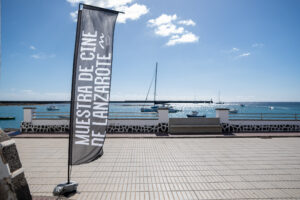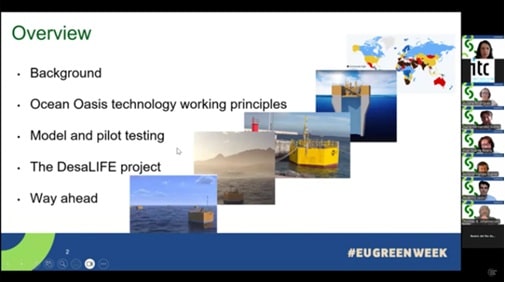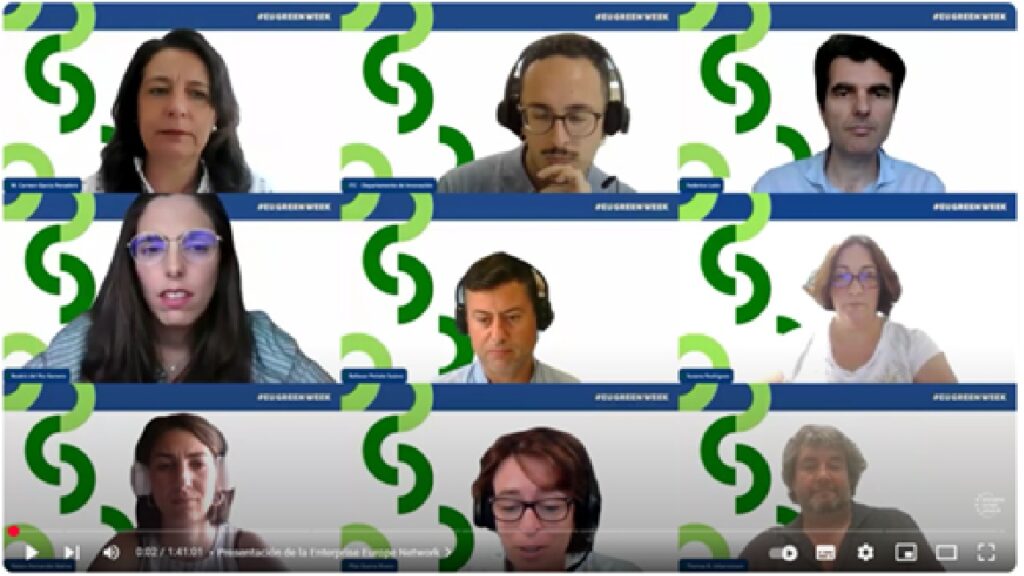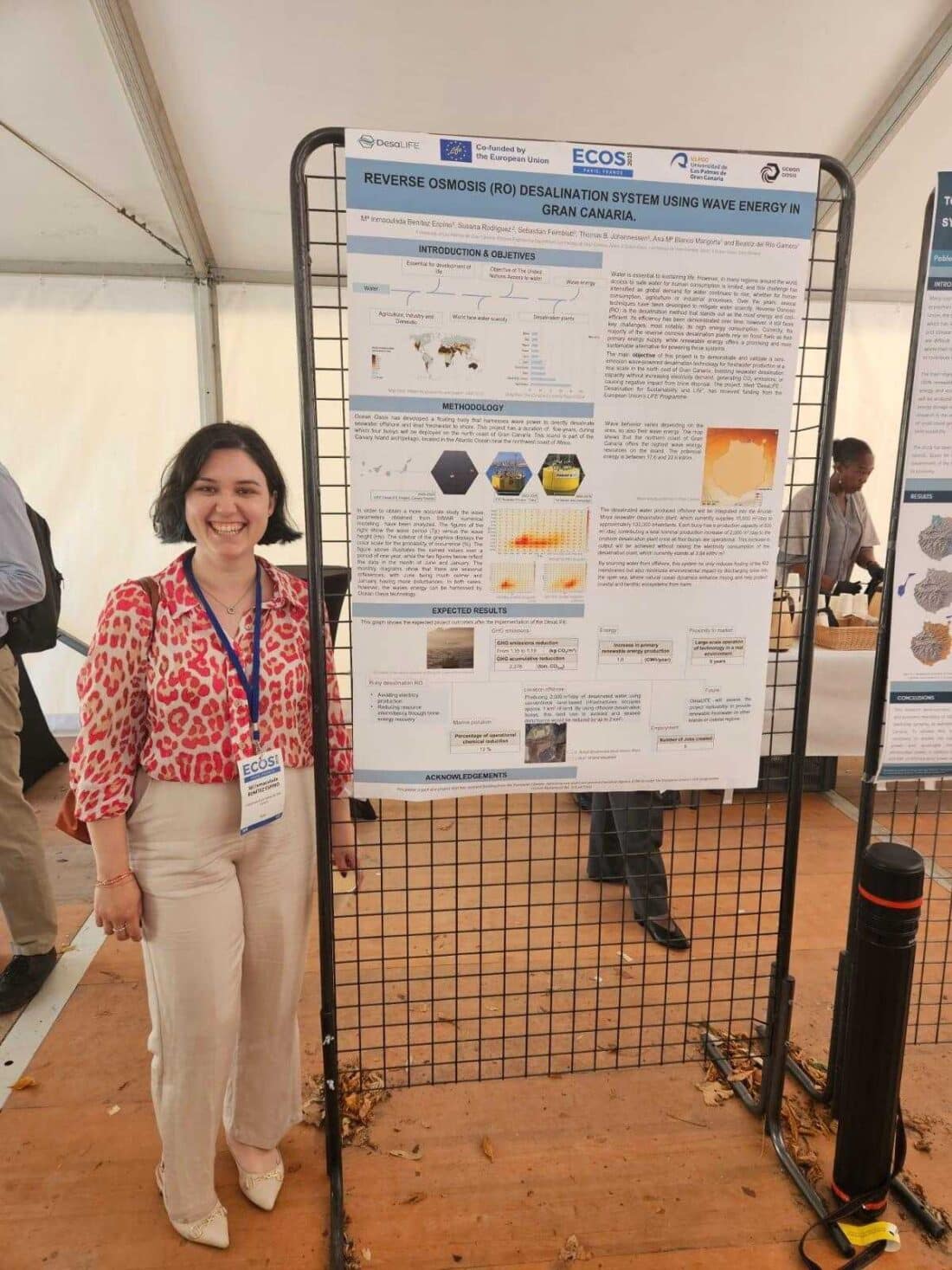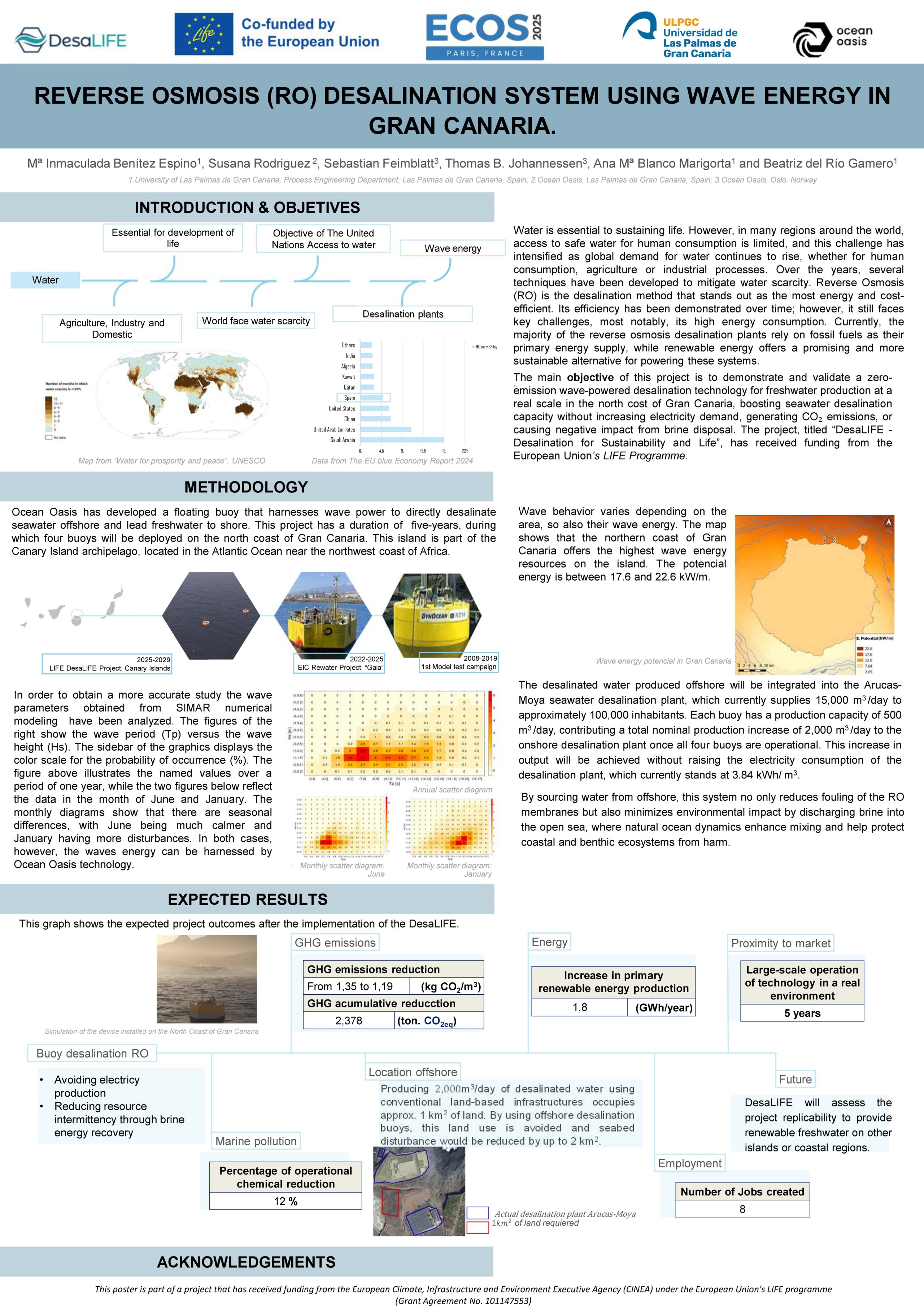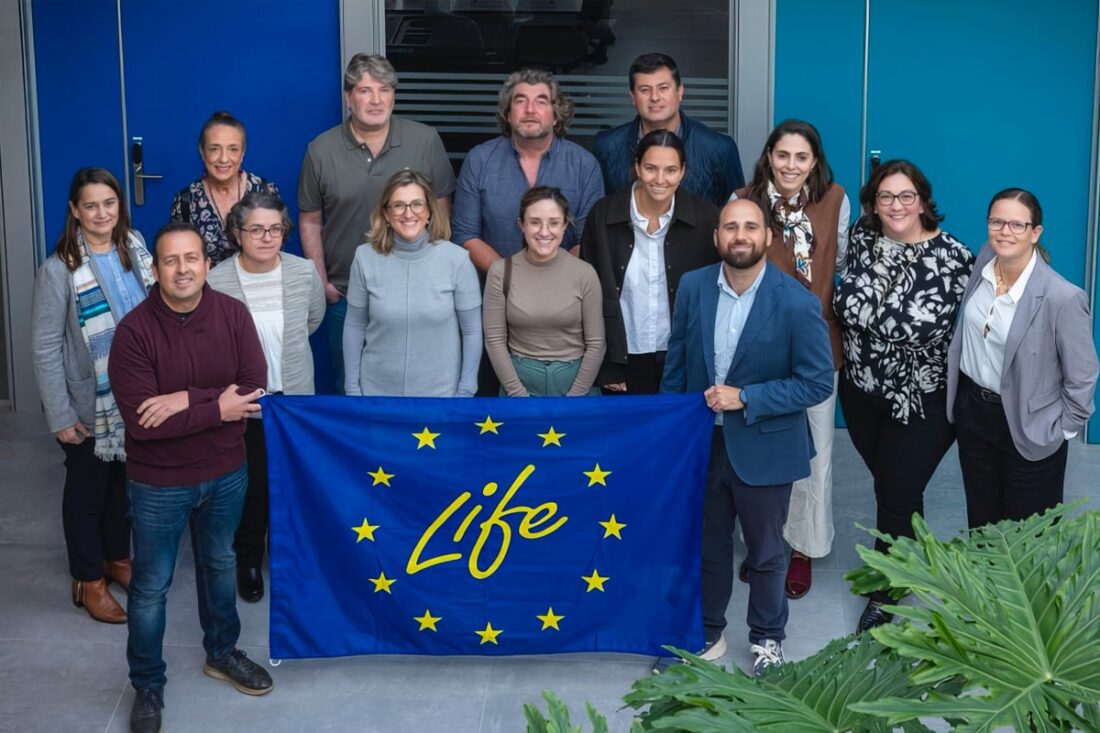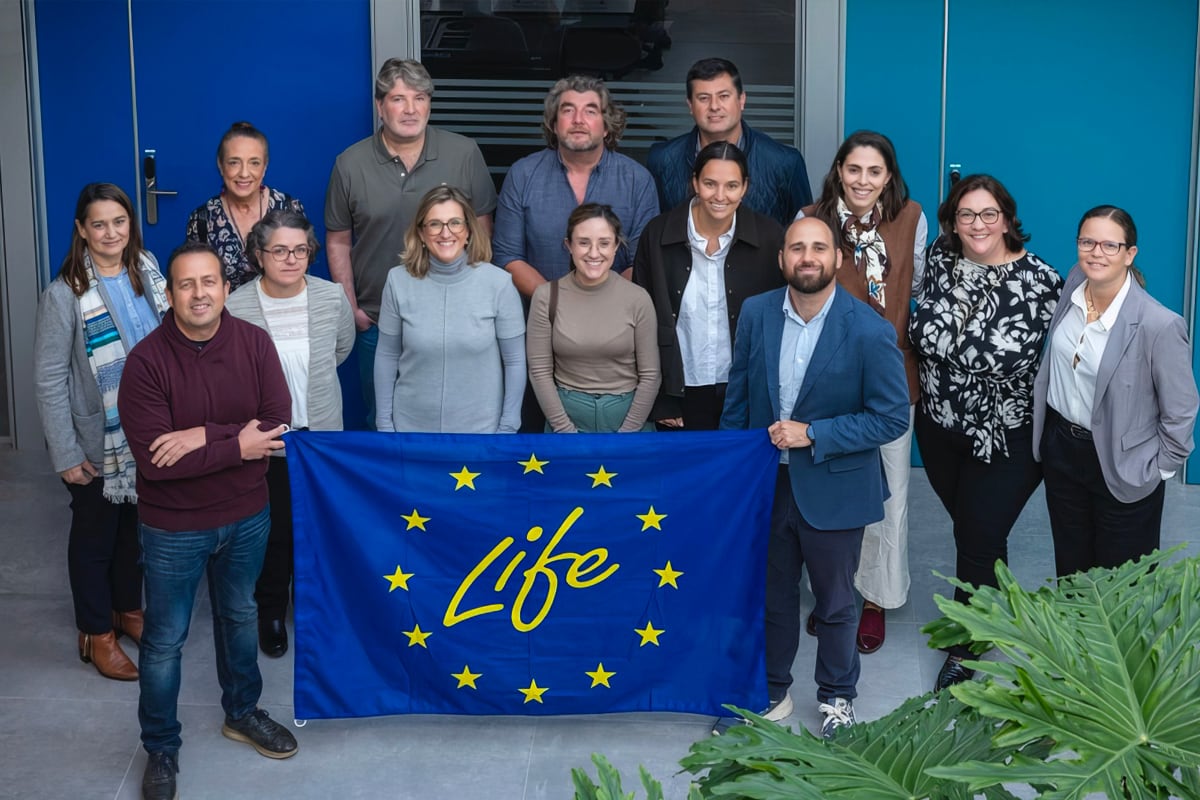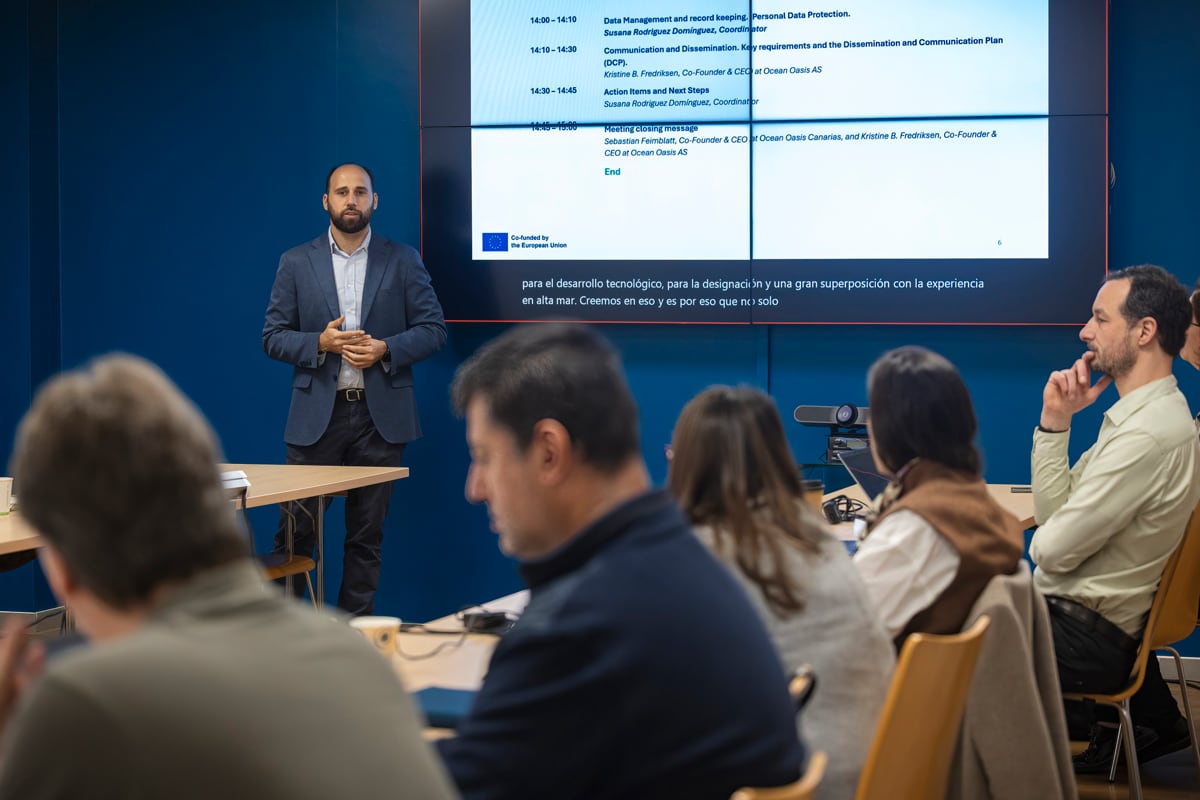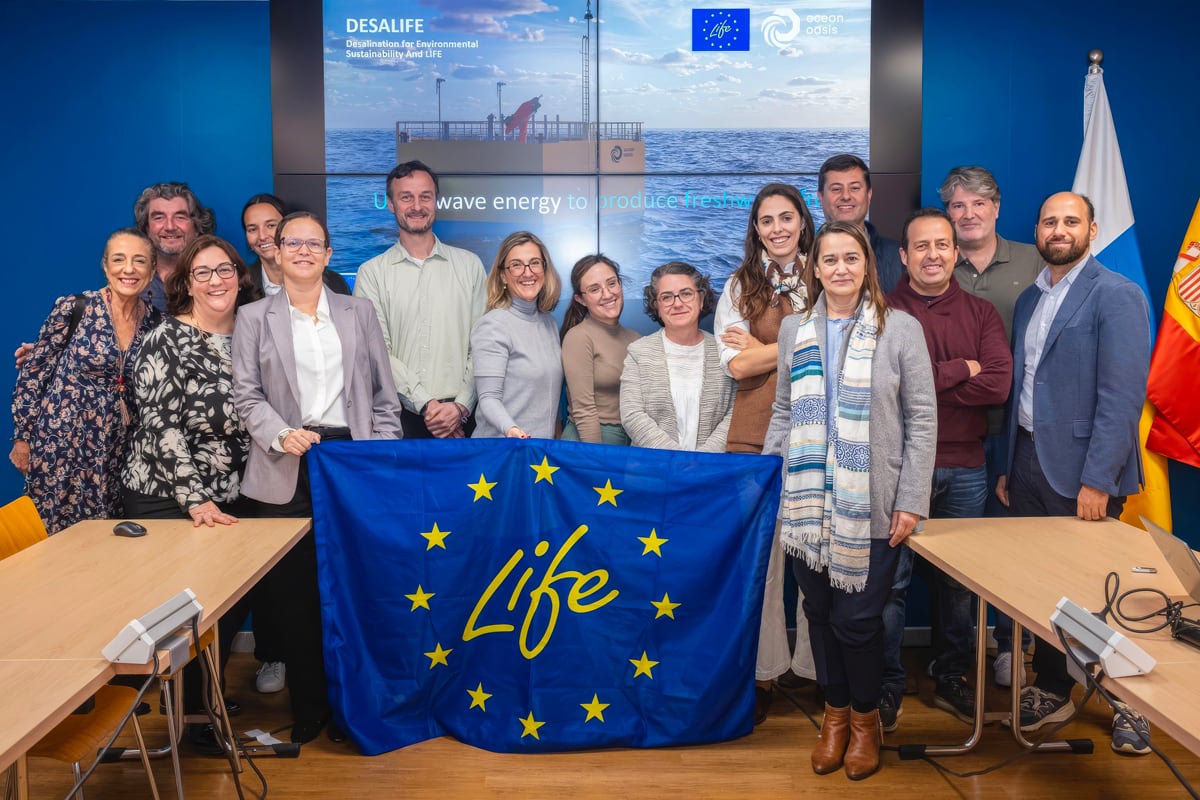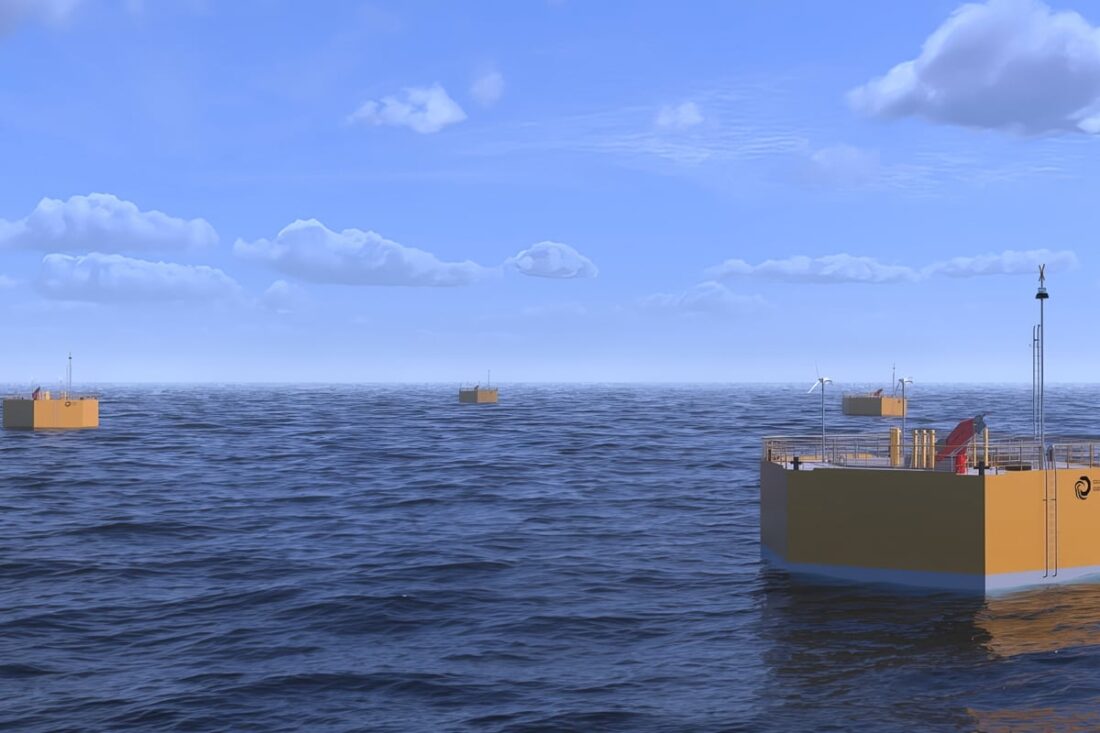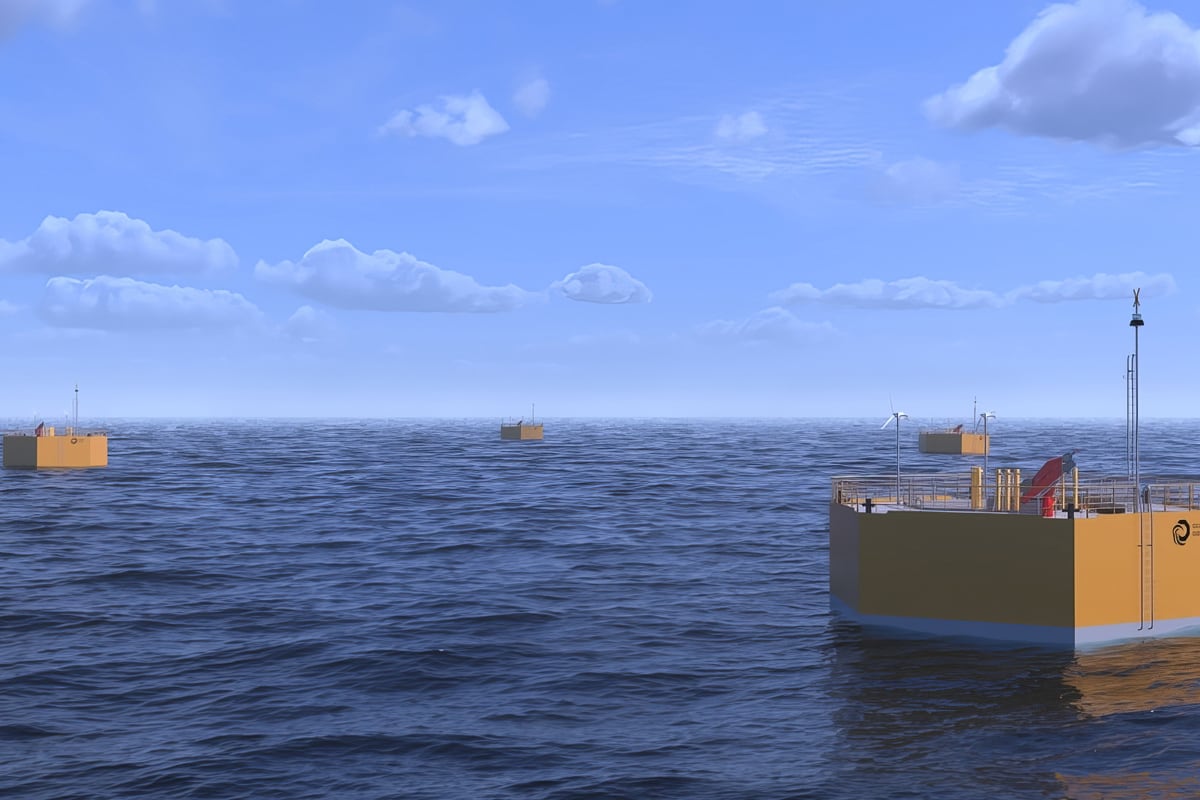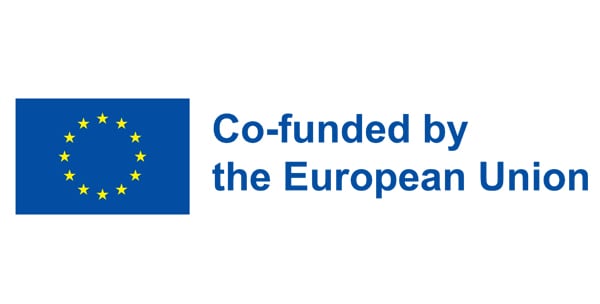Ocean Oasis Canarias, S.L, start-up con sede en las Islas Canarias, se centra en ofrecer una alternativa limpia al sector de la desalinización, que actualmente requiere mucha energía eléctrica, haciendo que el agua dulce esté más disponible en las zonas costeras. La compañía está probando una innovadora boya de desalinización impulsada por las olas, la solución central que se implementará en DESALIFE.
Esta empresa canaria, filial del grupo noruego Ocean Oasis, ha recibido un gran apoyo de la Unión Europea y de las autoridades y socios de la isla, y recientemente ha sido seleccionada como start-up innovadora con mayor potencial de Canarias por los Premios Emprende XXI. Ocean Oasis Canarias coordinará el proyecto DESALIFE hasta su finalización con éxito mediante la integración de una sólida formación y conocimientos en ingeniería marina y offshore de alta tecnología, tecnologías de desalinización, gestión de proyectos y en el ámbito del emprendimiento internacional.
El Instituto Tecnológico de Canarias (ITC) es un organismo público tecnológico que desarrolla proyectos y servicios en las áreas de investigación, desarrollo e innovación, y asesora al Gobierno regional en áreas tecnológicas estratégicas como el agua y la energía. En colaboración con universidades, instituciones de investigación y desarrollo, empresas y responsables de la toma de decisiones de Canarias y del extranjero, el Departamento de Agua del ITC ha desarrollado y probado soluciones con más de 20 sistemas piloto, no solo acoplando diferentes tecnologías de desalación y fuentes de energía renovables (FER) en Macaronesia, Marruecos y Túnez, sino también demostrando que la combinación desalación-energías renovables es ambiental, social y económicamente deseable. El ITC lidera la plataforma DESAL+ Living Lab, un ecosistema totalmente equipado que coopera, investiga y valida prototipos de desalinización de agua con un nexo agua-energía y un enfoque de energías renovables.
El ITC contribuirá al proyecto DESALIFE en la puesta a punto de los sistemas de desalación de última generación para la desalación sin productos químicos y la toma abierta, los estudios de replicabilidad en otras islas del archipiélago, la Macaronesia y Portugal, así como los procesos de obtención de permisos, entre otros.
La Plataforma Oceánica de Canarias (PLOCAN) es una entidad pública de investigación, reconocida como ICTS (infraestructura científica y técnica única) por el Ministerio de Ciencia. PLOCAN gestiona un conjunto único de infraestructuras, que incluye un laboratorio y un banco de ensayos oceánicos, y presta servicios auxiliares, dedicados al desarrollo de la investigación y el desarrollo oceánico con un enfoque en el uso sostenible y responsable de los recursos marinos.
La misión de PLOCAN es proporcionar una combinación rentable de servicios, incluyendo operaciones, datos y acceso a la Plataforma Offshore Multipropósito, observatorios e instalaciones de sitios de pruebas en el mar, que aborden los próximos desafíos de las ciencias oceánicas y las necesidades socioeconómicas.
DESALIFE se beneficiará de la experiencia previa de PLOCAN en el fomento del compromiso social y las actividades de comunicación dirigidas a los ciudadanos en proyectos medioambientales y de energías renovables para este fin. Esta ICTS gestionará el adecuado despliegue de la estrategia de comunicación y difusión prevista en el proyecto DESALIFE, así como la supervisión de las actividades dedicadas a la participación ciudadana, el trabajo en estrecha colaboración con la comunidad local para garantizar el flujo efectivo de información y el seguimiento de su apoyo durante la duración del proyecto.
El Grupo de Investigación en Sistemas de Energías Renovables (GRRES) de la Universidad de Las Palmas de Gran Canaria (ULPGC) contribuye a la investigación específica en el campo de las energías renovables, el nexo desalación-energía, los sistemas energéticos inteligentes, los métodos aplicados a la energía y la planificación energética. La situación geográfica de Canarias permite a esta institución pública compartir proyectos científicos, interactuar y colaborar con universidades y centros de investigación de todo el mundo.
GRRES complementa al consorcio DESALIFE como socios con competencias técnicas y científicas decisivas. El grupo de investigación contribuirá a la evaluación y ejecución de la obra civil de la planta desaladora en tierra y a las adaptaciones necesarias para la correcta integración de ambas producciones de agua desalada, además de representar al consorcio en talleres y eventos técnicos y políticos de alto nivel. A su vez, el Grupo de investigación GRRES cubrirá junto con el Instituto Tecnológico de Canarias tareas relacionadas con la difusión de DESALIFE y compilará el catálogo de buenas prácticas y recomendaciones para replicar el proyecto en otras localidades de la Macaronesia y Portugal con potencial de energía undimotriz.
elittoral S.L., Estudios de ingeniería costera y oceanográfica es una consultora de ingeniería marina, ambiental y costera fundada en Gran Canaria. Creada en 2007, ofrece sus servicios de estudios costeros especializados relacionados con la hidrología, la contaminación y los efectos del cambio climático, con el fin de conseguir una buena gestión de las zonas costeras y garantizar la sostenibilidad de los proyectos en los que se implica. elittoral ha exportado sus servicios a África (Argelia, Marruecos, Mauritania, Senegal, Gambia, Benin, Guinea Bissau, Cabo Verde,Sao Tomé y Príncipe, Angola y Mozambique) e Hispanoamérica (Costa Rica, El Salvador, Honduras, Nicaragua, Guatemala y Ecuador), estableciendo delegaciones en Galicia (España), Guatemala y Ecuador.
Como socio, elittoral pone a disposición del proyecto DESALIFE el conocimiento y el criterio técnico de profesionales altamente cualificados para liderar las actividades de caracterización, evaluación del impacto, controlar los indicadores clave del proyecto y realizar una gestión rigurosa del proceso de obtención de permisos.
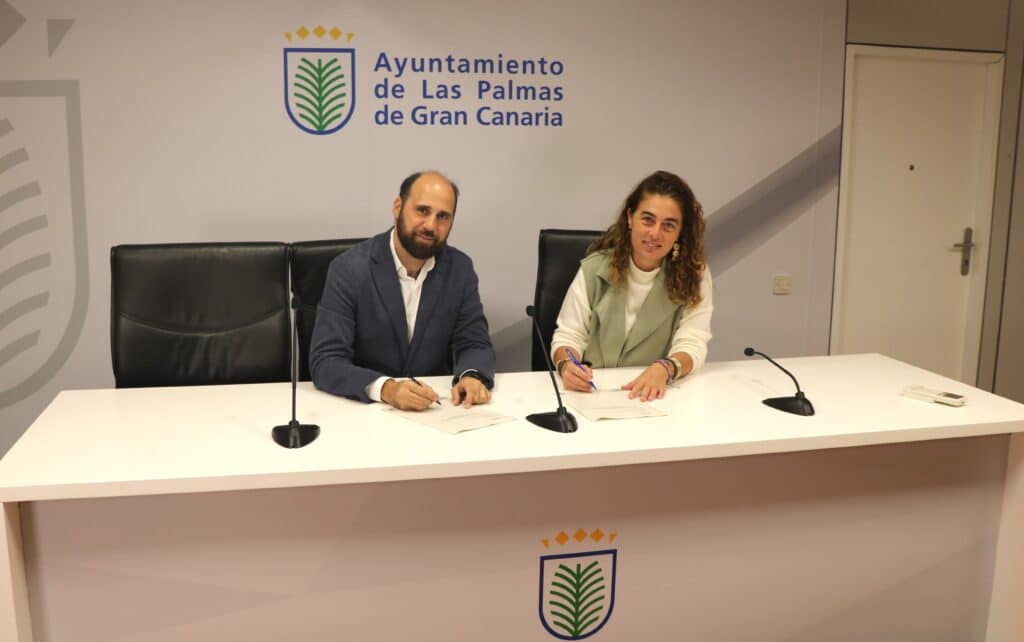
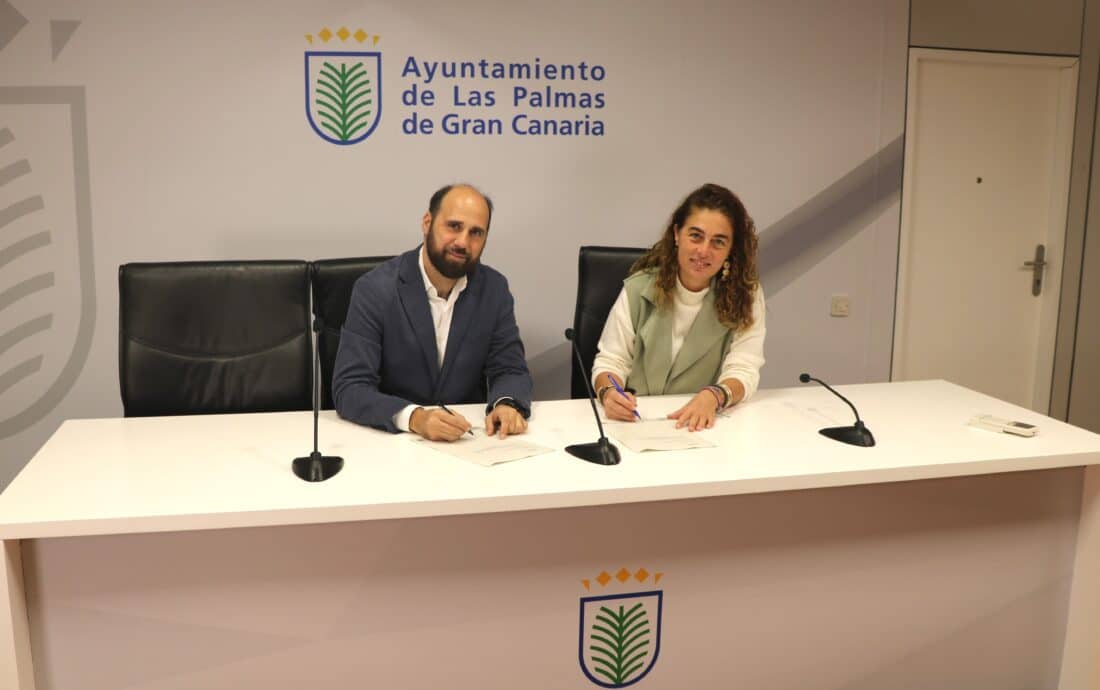
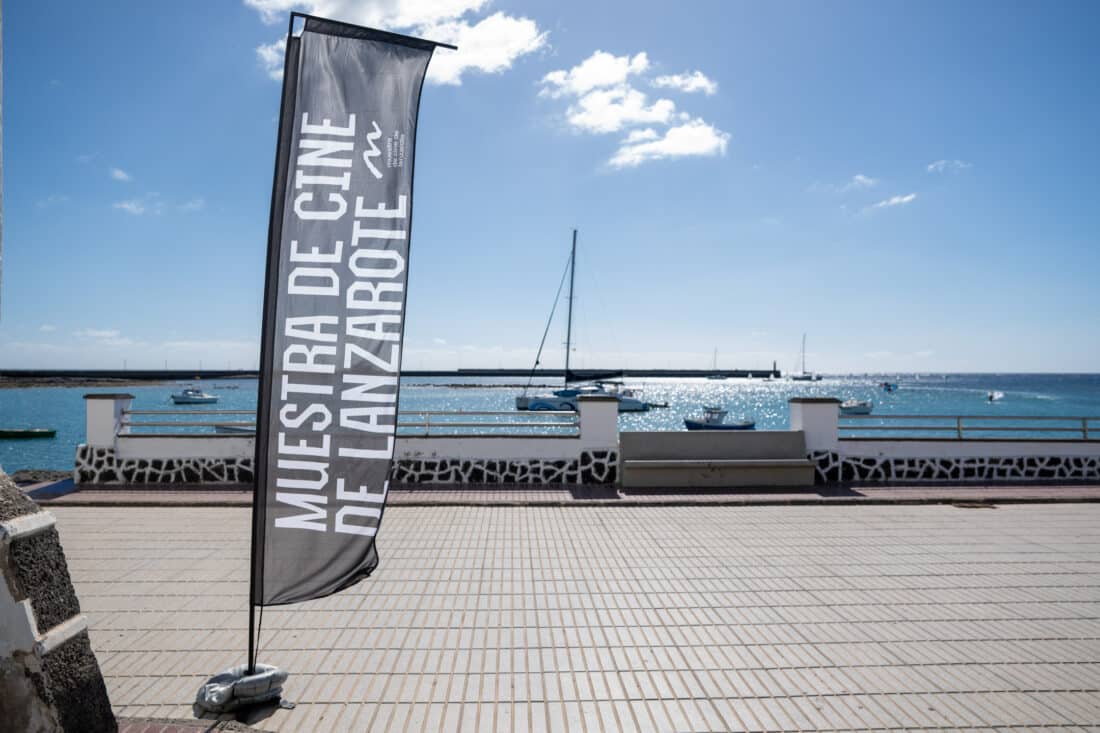
 El experto en ordenación estratégica, territorial, ambiental y urbanística, Jonathan Sicilia, moderó el conversatorio
El experto en ordenación estratégica, territorial, ambiental y urbanística, Jonathan Sicilia, moderó el conversatorio 
